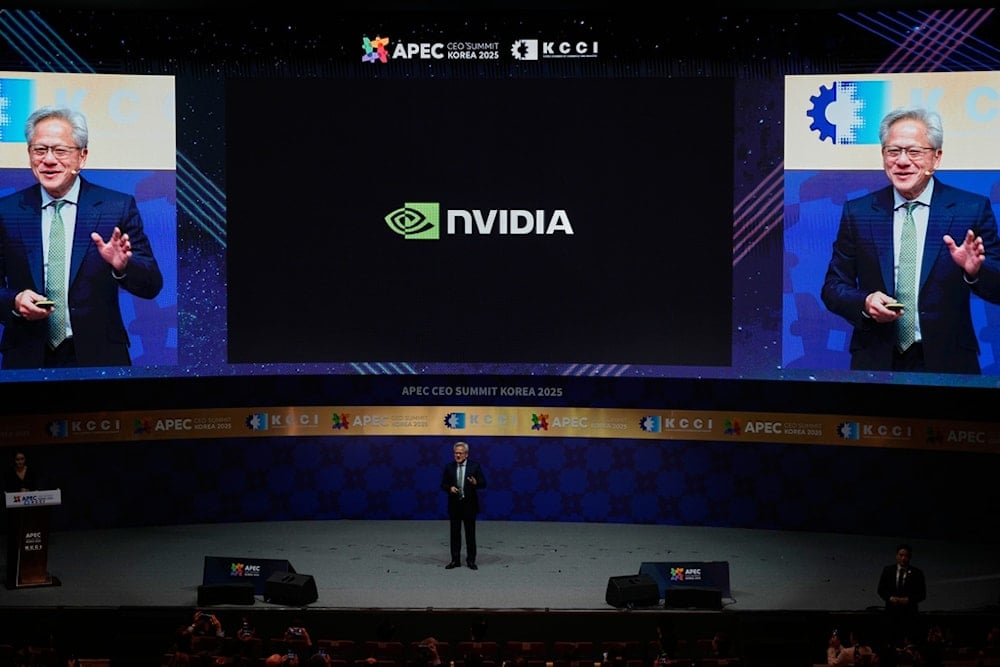US may allow Nvidia to export H200 AI chips to China: Reuters
The Trump administration is reviewing whether to let Nvidia export its H200 AI chip to China, amid thawing US-China tech relations and global chip competition.
-

NVIDIA CEO Jensen Huang makes a keynote speech during the special session at the Asia-Pacific Economic Cooperation (APEC) CEO summit in Gyeongju, South Korea, Friday, October 31, 2025 (AP)
The Trump administration is weighing whether to permit Nvidia to sell its advanced H200 artificial intelligence chips to China, sources familiar with the matter reported.. The potential shift in US policy reflects a broader easing of tech tensions following a recent bilateral understanding between Washington and Beijing.
Officials at the US Commerce Department, which oversees export controls, are reviewing changes that could lift restrictions on selling high-performance AI chips to China. While sources stressed to Reuters that the policy is still under review and could change, the move suggests a more flexible stance in US-China tech relations.
Neither the Commerce Department nor the White House responded to Reuters' requests for comment.
Nvidia also declined to comment on the review specifically but noted, “Current regulation does not allow the company to offer a competitive AI data center chip in China, leaving that massive market to its rapidly growing foreign competitors.”
Read more: Alibaba creates new AI chip to challenge Nvidia
H200 Export Could Mark Shift in US AI Policy
The potential approval of Nvidia’s H200 chip sales signals a more open export approach following the tech-focused détente struck last month between US President Donald Trump and Chinese President Xi Jinping in Busan.
The H200, unveiled two years ago, is a more powerful successor to the H100, featuring higher bandwidth memory and faster data processing. It is estimated to be twice as powerful as Nvidia’s H20 chip, the most advanced model currently cleared for legal export to China after a brief US ban was lifted earlier this year.
Despite this opening, critics in Washington remain cautious. China hawks warn that access to next-generation AI chips could accelerate Beijing’s military capabilities, a key reason previous administrations imposed strict limits on chip exports.
Read more: New poll shows Trump’s economy approval rating sink in key swing state
Export controls tied to geopolitical pressure
The policy shift comes as the United States navigates China’s growing assertiveness in the tech supply chain. Beijing’s restrictions on exports of rare earth minerals, vital to global tech manufacturing, have led Washington to consider reciprocal actions, though many proposed controls were rolled back.
Earlier this week, Nvidia CEO Jensen Huang, whom Trump referred to as a “great guy", was seen at the White House during Saudi Crown Prince Mohammed bin Salman’s visit. The Commerce Department later announced approvals for up to 70,000 shipments of Nvidia’s next-generation Blackwell AI chips to Saudi Arabia’s Humain and the UAE’s G42.
This development, along with the potential H200 review, underscores how US policy on AI chip exports is evolving in response to shifting diplomatic and commercial realities.

 3 Min Read
3 Min Read










